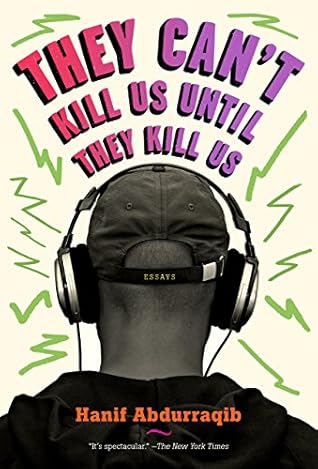More on this book
Community
Kindle Notes & Highlights
The truth is, if we don’t write our own stories, there is someone else waiting to do it for us. And those people, waiting with their pens, often don’t look like we do and don’t have our best interests in mind.
ScHoolboy Q is not alone, but as a rap artist gets bigger, and their ticket prices become higher, their audiences become whiter. It’s a question of who can afford the show, which in the case of ScHoolboy Q, becomes a question of who can afford to be comfortable saying a word that comes with a violence they’ll never know. I wonder, sometimes, if the trade-off is worth it. If my desire to see young black artists “make it” is worth my desire to watch them bowing to the comfort of others in this way. People who may, for a moment, put food on a table for their family, but would also not always
...more
It is a luxury to romanticize blood, especially your own. It is a luxury to be able to fetishize violence, especially the violence that you inflict upon others. To
The great mission of any art that revolves around place is the mission of honesty. So many of us lean into romantics when we write of whatever place we crawled out of, perhaps because we feel like we owe it something, even when it has taken more from us than we’ve taken from it. The mission of honesty becomes a bit cloudy when we decide to be honest about not loving the spaces we have claimed as our own. This is the work of Suburbia.
I’m sad and I’ve hurt people and I’m a beautifully tortured survivor of my past
But our best work is the work of ourselves, our bodies and the people who want us to keep pushing, even if the days are long and miserable and even if there are moments when the wrong side of the bridge beckons you close.
The great thing about an afterlife is that we’ve always been able to imagine it as the best possible place for us and our needs. The Black Parade is brilliant, though, because it complicates that. It finds small slivers of hope in the darkness of death and afterlife, yes, but the darkness is still darkness. It still sits, firmly, in the center of the experience of a slow and tedious demise. It does the work that all of our terrific afterlife fantasies don’t: it reckons with the idea that a departure is most difficult because of who we leave behind.
Once I hit a certain age, I never imagined a life where I didn’t lose friends. I dated someone during this year who told me she’d never been to a funeral. She was twenty-two years old. I couldn’t decide if I thought something was wrong with her, or if something was wrong to me—the way I learned to cling to my relationship with death as if loving it hard enough would make it into a full person. A person who looked, at least a little, like everyone I had loved and lost.


